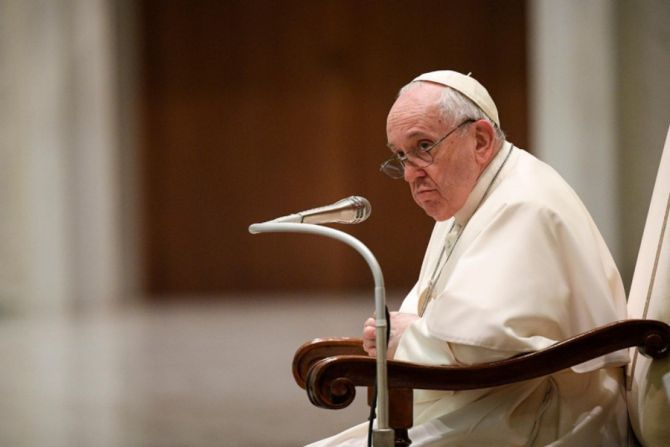Pope Francis issued an apostolic letter on Tuesday bringing Church law up to date on the rules for dismissal from religious institutes, in light of the updated penal law on sanctions related to clerical sexual abuse and other crimes.
The letter, known as Recognitum librum VI and issued motu proprio (on the pope’s “own impulse”) on April 26, modifies one sentence from canon 695 of the Code of Canon Law.
The pope explained that the modification makes the line consistent with the major revisions made last year to Book VI of the code’s penal law, which classified some crimes differently and introduced new crimes.
The new text of canon 695 §1 says: “A religious must be dismissed from the institute for the delicts mentioned in can. 1395, 1397, and 1398, unless in the delicts mentioned in can. 1395, §2-3 and 1398 §1, the superior decides that dismissal is not completely necessary and that correction of the religious, restitution of justice, and reparation of scandal can be resolved sufficiently in another way.”
The Code of Canon Law defines a religious institute as “a society in which members, according to proper law, pronounce public vows, either perpetual or temporary which are to be renewed, however, when the period of time has elapsed, and lead a life of brothers or sisters in common.”
Canon 1395 of the new code refers specifically to “a cleric living in concubinage” and clerics who continue in some other external sin against the sixth commandment (“You shall not commit adultery”) which causes scandal, as well a cleric who “forces someone to perform or submit to sexual acts.”
Canon 1397 of the Church’s law details the punishments for a person who commits homicide, gravely wounds another person, or procures an abortion.
Canon 1398 deals with clerical sexual abuse of a minor and the distribution of pornographic images of minors.
Pope Francis said that he made the change after hearing from the Pontifical Council for Legislative Texts and the Congregation for Institutes of Consecrated Life and Societies of Apostolic Life.
The Pontifical Council for Legislative Texts is not itself a lawmaker, but assists the pope, who is the Church’s supreme legislator, in drafting and interpreting canon law.
With the change, canon 695 now refers to the appropriate canons in the revised Book VI of the Code of Canon Law, which came into force on Dec. 8, 2021.
The reformed penal code introduced new crimes in the area of economic and financial matters to canon law and moved the canons concerning the crime of sexual abuse of minors and crimes of child pornography from the section on “crimes against special obligations” to that of “crimes against life, dignity, and freedom of the person” in Book VI.







